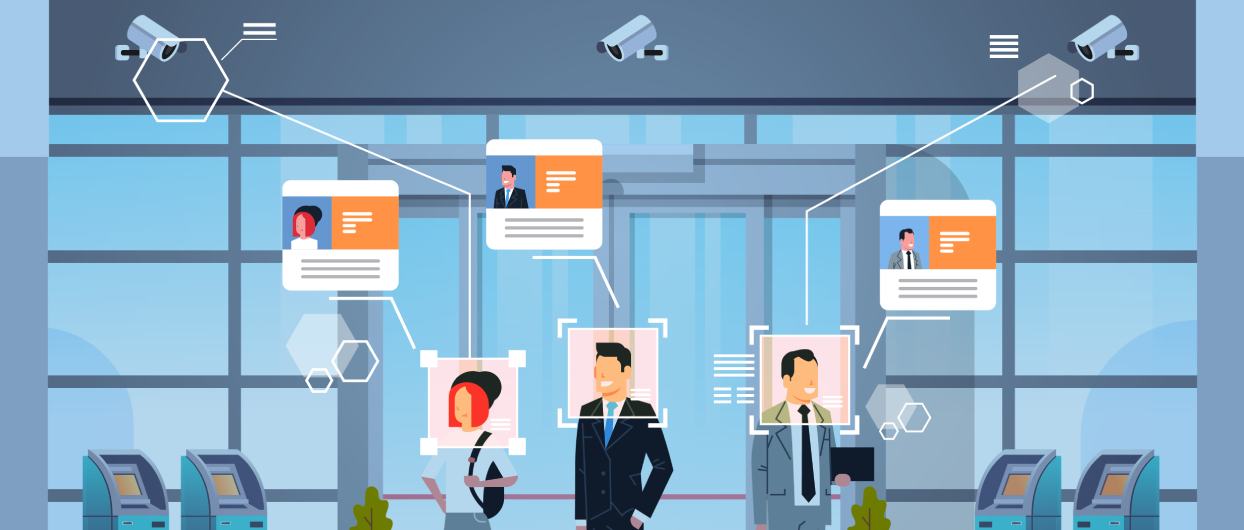How Business Intelligence Helps the Retail Sector
By
Last Updated May 05, 2023
Because retail is one of the most data-driven industries in the world, using business intelligence tools to understand customer behavior, estimate inventory needs, and build forecasts is essential for any retailer. BI assists retailers in organizing, analyzing, and contextualizing business data from across the organization. It also provides reports, performance metrics, and company trends to assist businesses in making informed decisions today. With the global business intelligence and business analytics software market expected to reach 17.6 billion dollars by 2024, it goes without saying that BI can benefit the retail industry in particular. Market Statistics for BI in the Retail Industry
Business intelligence enables retailers to capitalize on new opportunities to forecast sales and assess market potential.
Table of content
Let us see How Business Intelligence Helps the Retail Sector :
1. Business intelligence's role in the retail industry
2. The most important advantages of business intelligence in the retail industry
3. Let us now look at some real-world business intelligence examples to see how this business solution is transforming the retail industry:
4. What role can Syoft play in your BI journey?
While you may have a general understanding of why BI in retail is necessary, let us go over the role of BI in retail and its numerous benefits for your business in greater detail in the following sections.
Business Intelligence's Role in the retail industry
The retail industry is more competitive and fast-paced than ever, and there is no such thing as having too much information when it comes to staying ahead of the competition. In the retail industry, business intelligence helps track how customers interact with eCommerce stores, and this information can be used to improve the customers' shopping experience. For example, a customer may receive suggestions based on previously viewed items.
Retailers can use business intelligence to make smart and efficient decisions. Data can be viewed in real-time, allowing businesses to quickly change product offerings or adjust prices. This information can also be used by physical stores. They can use BI to balance inventory between online and in-store stock and offer cost-effective shipping options such as in-store pickup or online purchase.
For example, many brick-and-mortar stores, such as Home Depot and Walmart, are utilizing BI to provide cost-effective shipping options and effectively manage their inventory. Access to more valuable operational and customer data also assists businesses in providing a consistent experience across all channels. Furthermore, BI can predict when stock will run out, allowing retailers to plan ahead of time and make better merchandising decisions.
The most important advantages of business intelligence in the retail industry
In today's market, brands that can leverage good customer service and personalization can generate 5.7 times more revenue than competitors. But how do you find out who your target customers are and what they want? This is where business intelligence enters the picture. It enables businesses to absorb massive amounts of data about their operations – everything from sales to market trends, customer behaviors, needs, and so on. This allows you to connect with your customers.
Here are a few more advantages of using business intelligence in the retail industry. So, let's get started!
Enhances business operations
Using business intelligence tools gives retailers more control over their operations. It aids them in keeping track of what is going on.
A retail company, for example, can use the BI tool to deal with late deliveries and determine why they occur. This type of data in their operations could significantly improve their services. Improves the customer experience Excellent customer service is the key to any business's success. It increases business value, aids in customer retention, reduces employee turnover and boosts brand loyalty.
However, providing exceptional customer service can be difficult, especially if a company has a large customer base but few employees. It can be difficult for a retailer to engage employees and keep customers satisfied while also running a profitable business. Businesses can mitigate these issues while also keeping their customers happy by properly automating customer service. Retailers, for example, can use customer analytics from a BI tool to better understand their customers' needs, meet their expectations, and identify areas for improvement. These analytics can also assist marketers in developing a data-driven customer journey map by providing insights into how customers interact with products, websites, or businesses.
Aids in inventory management optimization
Inventory management is the foundation of any successful retail operation. It includes all stock handling activities, from sourcing to storing to selling inventory and finished goods. Any retailer with inventory faces a number of inventory challenges. Inventory management can be difficult for retailers due to inefficient tracking and overstocking issues.
However, investing in a BI and data analytics solution can aid in inventory management and solve the majority of problems.
Retailers can use a BI system to maintain optimal stock levels, reduce inventory costs, and improve order management and order processing. BI enables retailers to categorize their products using Selective Inventory Control (SIC), also known as ABC analysis. Using this method, retailers can identify items that have a significant impact on inventory costs. It categorizes the inventory into three groups: A, B, and C. C are the least valuable, while A is the most valuable. BI analytics can also be used to predict overstocking situations before they become a major issue.
Discovers emerging consumer trends
Business intelligence has become critical for identifying new and emerging consumer trends.
Consider the case of Covid-19. The pandemic outbreak influenced consumer behavior, with an increase in BI analytics can also be used to predict overstocking situations before they become a major issue.
Consider the case of Covid-19. The pandemic outbreak shifted consumer behavior, with a greater emphasis on health-related products and services. Increased consumption of healthy foods such as eggs and dairy was viewed as an ideal opportunity for retailers to rework their offerings in order to meet changing consumer demands. Another excellent example is clothing companies that jumped on the consumer trend of branded face masks and began developing more hygienic products in response to consumer demand.
BI in retail allows retailers to identify patterns in their customers' purchasing habits, allowing marketing teams to rework their campaigns.
Aids in the optimization of store floor plans
One of the main reasons retailers use BI is to create a floor plan that entices customers to stay longer. Businesses should select a floor plan that makes it easy for customers to shop.
Retailers can use BI software to determine whether the chosen floor plan is adequate for the floor size and product types. They can use BI solutions to analyze various data sets (number of stops, duration of visits, etc.) and recommend a floor plan that will make it easier for customers to find products.
Increases the effectiveness of marketing
With the availability of numerous social media tools and marketing platforms, marketing has evolved into a data-driven industry. However, for the best marketing results, Companies that use BI analytics for marketing gain in-depth insights into their customers' preferences, interests, and attitudes. These insights assist them in developing marketing campaigns and advertising on the appropriate platforms.
A BI solution, for example, will provide relevant metrics such as page views, likes, on-page actions, and so on if a retailer wants to capitalise on Facebook ads. Furthermore, a BI tool can detect trends and data patterns that can be used to boost Facebook likes and click-through rates (CTR).
Improves supply chain efficiency
As retailers involve more merchants and sell more of their products, supply chains become more complex. The sourcing of merchandise, as well as the various distribution channels, contribute to inefficiencies and underperforming departments in the retail supply chain. This enables retailers to develop better forecast models and identify key logistical bottlenecks that the supply team should address in order to meet organizational KPIs.
Examples of real-world retail businesses utilizing BI
You may now understand how business intelligence enables retail businesses to organize and analyze business data from across the organization in order to make informed decisions.
Let us now look at some real-world business intelligence examples to see how this business solution is transforming the retail industry:
Amazon and business intelligence go hand in hand: Business intelligence is used by the company to personalize product recommendations, market products and make decisions BI tools have an impact on almost every step of Amazon's supply chain, from allocating inventory among warehouses to optimising shipping routes.
Starbucks uses business intelligence software to predict what purchases and offers a customer is likely to be interested in. Customers are informed of offers that the company believes they will want to take advantage of. Starbucks can use this system to bring in more existing customers and increase sales volume.
Lowe's is also a big fan of BI, using it to optimise their supply chain, analyse products to detect potential fraud and solve problems. They also use business intelligence to gain deeper insights that lead to better product assortment.
Walmart embraces BI: The retailing behemoth employs BI tools to better understand how online behaviour influences in-store and online activities. BI tools can help Walmart understand its customers' purchasing habits. For example, how many people searched for a product and then purchased it from the Walmart app/website on the same day? This allows them to identify busy days and exit points in their users' journeys. So, if you need top-tier business intelligence services, you can consult and hire our experts. We will meet all of your requirements!
What role can Syoft play in your BI journey?
The benefits of using business intelligence in the retail industry are numerous. BI implementation can improve your company's proficiency by providing clear insights into business trends and improving customer experiences.
Recent Posts
Get a Free Quote.
Lets Build Your App!
Connect





